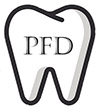
Many people suffer from dental anxiety, which is a fear of going to the dentist. Around 20 percent of this group will visit a dentist only when absolutely necessary with five percent avoiding it altogether. In addition, there are special groups of patients, such as those experiencing domestic violence, mood disorders or PTSD, who may feel a high level of anxiety while at the dentist.
The Cause of Dental Anxiety
While some fear grows out of a bad early experience with a dentist, most cases are rooted in a person’s lack of control while in the chair. Having to lie in a prone position with a hand in the mouth and being unable to move or speak is scary for some individuals.
Easing Dental Anxiety
There are several ways to overcome anxiety at the dentist. Choosing a dentist’s office that is friendly and explains all procedures in detail to avoid confusion is the first step. Another approach is sedation, which will put the patient in a pleasant sleep while the dental procedure is being done. The patient will wake up relaxed with no memory of the event. Other patients who do not wish to be sedated may opt for noise-cancelling headphones to block out the sound of the drill.
What a Dentist Can do to Ease Anxiety
A dentist’s approach to treatment can go a long way to easing a patient’s fears. A few simple methods include:
- Explaining what the patient will feel and for what length of time
- Asking the patient if it is okay to continue with the procedure
- Allowing the patient to stop the procedure at any point with a pre-arranged signal, such as the lift of a hand
- Honoring a patient’s request to take a break if requested
Oral health has a direct connection to the rest of the body, which is why dental care is so important. Finding the right dentist is the foundation to overcoming fear and having a better quality of life.
